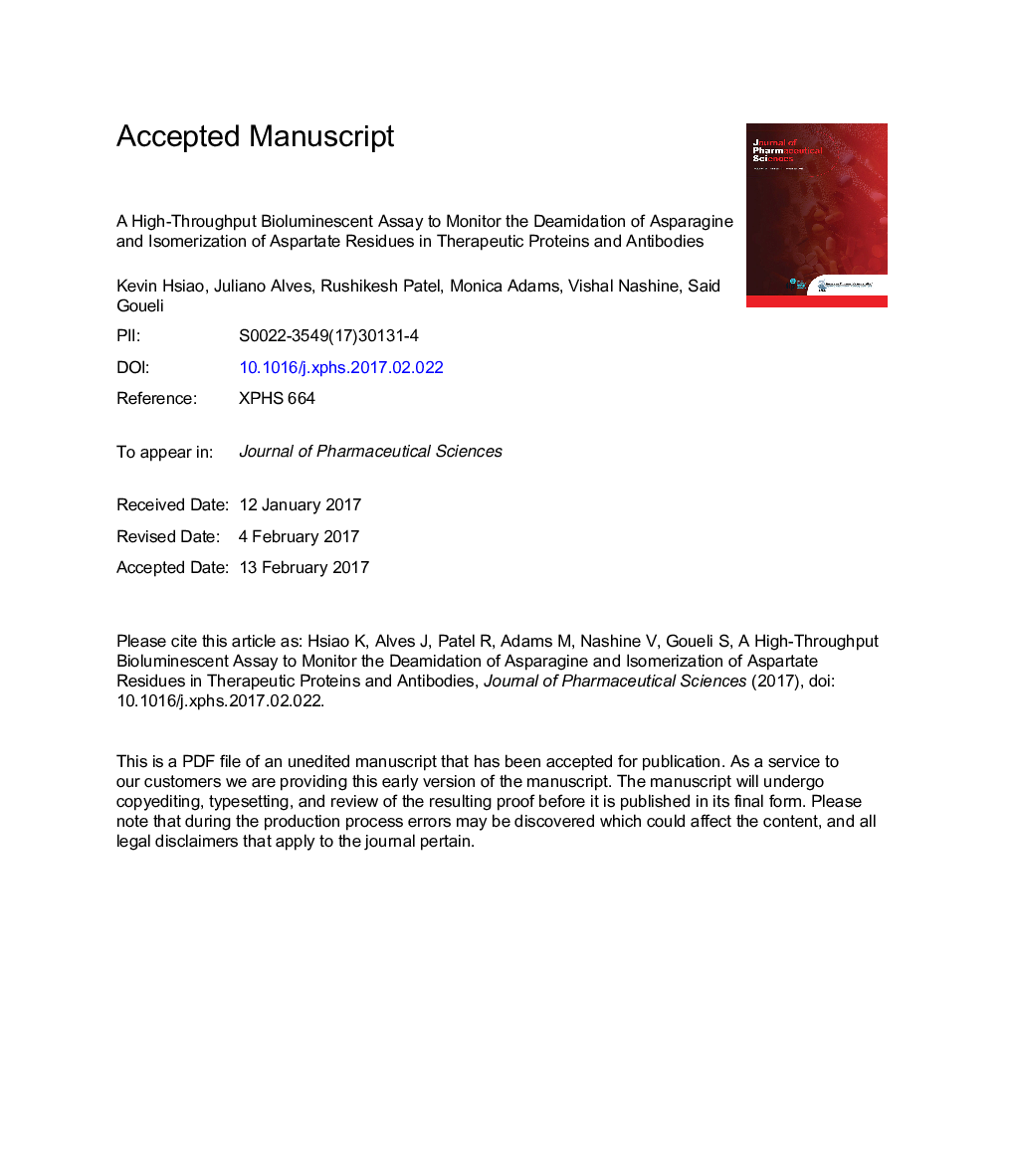| Article ID | Journal | Published Year | Pages | File Type |
|---|---|---|---|---|
| 8514187 | Journal of Pharmaceutical Sciences | 2017 | 27 Pages |
Abstract
Since the introduction of Herceptin and Rituximab in 1986, therapeutic antibodies have gained tremendous momentum in the treatment of broad range of several diseases such as cancer and inflammation. Selection of the clinical candidate mAb usually starts with large-scale in vitro screening and profiling of multiple mAbs to identify candidates that show high in vitro or in vivo activity, and thus it is necessarily to identify and eliminate potentially unstable mAbs during the lead selection process. Antibodies undergo a variety of degradation reactions that may result in compromised bioactivity and safety profile. The nonenzymatic post-translational modification of both deamidation of asparagine and isomerization of aspartate residues is one of the major chemical reactions occurring in proteins during production and storage resulting in formation of protein variants that may affect the quality, safety, and functionality of the therapeutic proteins. Current methods (HPLC and liquid chromatography and mass spectrometry) for monitoring isoaspartate (isoAsp) formation are time consuming, require specialized equipment and trained personnel, and are not amenable to high-throughput scaling. We have developed a robust, homogenous, high-throughput formatted, and sensitive assay to accurately monitor the formation of isoAsp under several conditions, such as new formulations, storage periods, and temperature.
Keywords
Related Topics
Health Sciences
Pharmacology, Toxicology and Pharmaceutical Science
Drug Discovery
Authors
Kevin Hsiao, Juliano Alves, Rushikesh Patel, Monica Adams, Vishal Nashine, Said Goueli,
